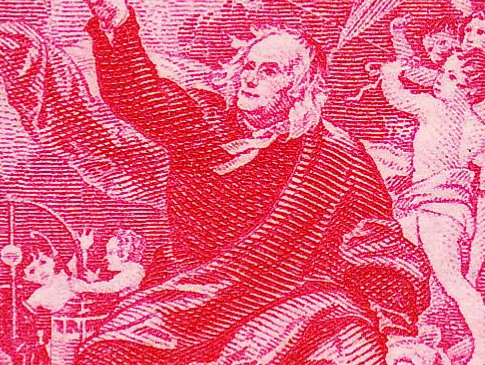Education
Meeting Franklin’s Challenge the Only Way Possible

“A republic, if you can keep it,” Ben Franklin famously challenged when asked what kind of government the Constitutional Convention had designed.
Are we about to fail the challenge Franklin made?
“We are Hamas!” the students of America’s most elite colleges proudly proclaim today. Certainly, if we have not yet failed Franklin’s challenge, we sit on the precipice with an abyss below.
How is it that our “best educated” youths identify with a genocidal terrorist organization? In his farewell address, President Reagan warned us this would happen if we didn’t do “a good enough job teaching our children what America is and what she represents in the long history of the world.”
At the time, we too feared we were not doing enough. We too sensed things had changed. Whether parents to their children or popular culture to the broader population, promoting an “unambivalent appreciation of America” was no longer in style.
“An informed patriotism is what we want,” Reagan had reminded us. But to be lasting it would need to be grounded in “thoughtfulness and knowledge.” We did not sit idly by. We examined those who manifested the qualities of good citizenship. Good citizens knew constitutional structures, rights, and responsibilities. Good citizens were active in their communities. We set out to teach and encourage those things.
The subsequent decades were filled with well-funded, public-spirited efforts to reform American civics education with the aim of creating thoughtful, patriotic citizens. The results of projects such as these have been threefold.
Why has civics education failed?
First, the development of myriad high-quality curricular materials treating the subject of American political history and institutions and the operation and efficiency of free markets. Second, the expansion of action civics and the cultivation of an activist mindset among youth. And third, continued decline in civic literacy and patriotic attachment as evidenced in NAEP civics scores, Gallup polling on civic pride, and our Hamas-identified college students. Even on today’s college campuses that would be graded a failure.
These efforts have failed because they sought to promote the phenomenon of good citizenship by way of promoting its epiphenomena. Yes, good citizens know about America’s constitutional structures, rights, and responsibilities, and are active in their communities. But they are not good citizens because they know and do such things. The goodness of the good citizen is more deeply rooted.
While we offered facts and activities to our youths, the ideological forces ranged against the American way of life offered an answer to the question of “what America is and what she represents in the long history of the world.” They asserted that the rise of the West and America is largely the story of the ever more effective oppression of the weak by the strong. This “oppression thesis” is the simple, powerful answer that has mustered the “We are Hamas!” brigades. We now reap what the left sowed – not thoughtfulness and knowledge, but thoughtless ignorance.
Show the value of cooperation
Learning about America’s constitutional structures, rights, and responsibilities and developing skills such as public speaking and debate are necessary but insufficient to the task at hand. We will not keep the republic with more of the same. The day is late, but we must work hard to displace the oppression thesis by making a compelling positive moral case for America, one rooted not in hagiography, but in the truth – warts and all.
This truth is best expressed by what we call “the cooperation thesis,” which is the idea that the rise of the West and America is largely the story of the rise of ever more effective cooperation made possible by an ever more efficient market system fueled by ever freer people. If we successfully deploy such a Cooperation Civics, we will explain to our fellows why they should love their country. We will meet Franklin’s challenge and keep the republic.
This article was originally published by RealClearPolitics and made available via RealClearWire.
-

 Accountability3 days ago
Accountability3 days agoWaste of the Day: Principal Bought Lobster with School Funds
-

 Executive1 day ago
Executive1 day agoHow Relaxed COVID-Era Rules Fueled Minnesota’s Biggest Scam
-

 Civilization9 hours ago
Civilization9 hours agoWhy Europe Shouldn’t Be Upset at Trump’s Venezuelan Actions
-

 Constitution2 days ago
Constitution2 days agoTrump, Canada, and the Constitutional Problem Beneath the Bridge
-

 Civilization1 day ago
Civilization1 day agoThe End of Purple States and Competitive Districts
-

 Christianity Today9 hours ago
Christianity Today9 hours agoSurprising Revival: Gen Z Men & Highly Educated Lead Return to Religion
-

 Civilization5 days ago
Civilization5 days agoThe devil is in the details
-

 Executive21 hours ago
Executive21 hours agoWaste of the Day: Can You Hear Me Now?











